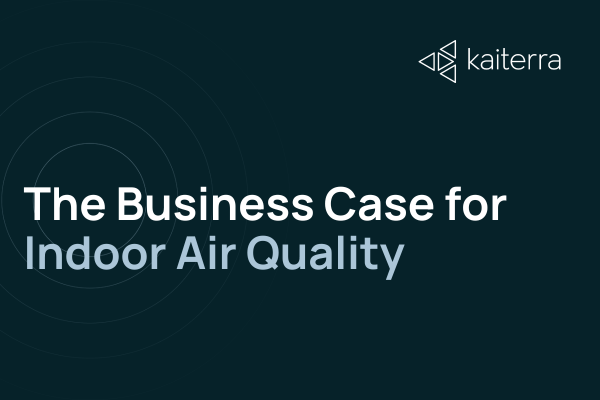Newsletter
The Living Building Challenge has emerged as one of the most ambitious building certification programs. Disregarding the traditional points system created by other comparable programs, the Living Building Challenge lives up to its name by offering a comprehensive set of requirements for each level of certification.
What Is the Living Building Challenge (LBC)?
Established by the International Living Future Institute, the Living Building Challenge (LBC) was established to raise the bar on environmentally conscious, healthy building. Overall several iterations, most recently culminating in the Living Building Challenge 4.0, LBC has been refined to go a step beyond basic health and sustainability concerns.
Living Building Challenge 4.0 is broken down into seven categories called Petals, and each Petal is separated into Imperatives, making for a total of 20 Imperatives. Among the 10 Core Imperatives is Healthy Interior Environment, part of the Health + Happiness Petal.

Image via living-future.org.
Grow Your Health + Happiness Petal With Indoor Air Quality Solutions
Because of its connection with occupant well-being, indoor air quality improvements are emphasized by the LBC 4.0 Standard by splitting up Healthy Interior Environment into two individual Imperatives: Healthy Interior Environment and Health Interior Performance.
Healthy Interior Environment
The Healthy Interior Environment Core Imperative aims to promote good indoor air quality and healthy indoor environment for all building occupants. To receive credit for this Imperative, projects must meet all Imperative requirements, including ASHRAE compliance, smoking ban, direct exhaust for certain areas, daylight requirements, and the development of a Healthy Interior Environment Plan. This plan must cover cleaning protocols, particulate and toxin prevention through an entry approach, and at least one air quality improvement strategy.
Healthy Interior Performance
The Healthy Interior Performance Imperative ensures that the goals of the Healthy interior Environment Imperative are being met; projects must demonstrate ongoing healthy indoor conditions and air quality.
To promote good air quality, projects must:
- Provide the results from an Indoor Air Quality test one to six months after occupancy, or provide readings from an ILFI-approved continuously monitored indoor air quality system.
- Comply with the CDPH Standard Method v1.1-2010 (or international equivalent) for 90% of interior building products that have the potential to emit volatile organic compounds (VOCs).
- Implement a cleaning protocol that uses cleaning products that comply with the EPA Safer Choice label (or international equivalent, such as Globally Harmonized System [GHS]).
Achieve an LBC Certification With Kaiterra’s Enterprise Air Quality Monitors
For both Imperatives in the Health + Happiness Petal, commercial air quality monitoring solutions from Kaiterra can help you reach your goals.
As part of the Healthy Interior Environment Plan, identifying ways to improve indoor air quality is essential to receive credit for this Imperative. One way to not only determine areas to enhance air quality but also measure the effectiveness of those improvements is to use an indoor air quality monitor in conjunction with a Healthy Interior Environment Plan.
Knowing exactly which pollutants are an issue and locating potential pollutant sources will help guide air quality improvements, so effort is not unnecessarily expended. Kaiterra’s commercial air quality monitors can help you do this, with air quality insights available on the Kaiterra dashboard and building automation pathways readily accessible.

Air quality data available on the Kaiterra dashboard can help you identify pollutant spikes and even evaluate ventilation rates.
The benefits of air quality monitoring are even greater for the Healthy Interior Performance Imperative. Air quality testing can be a costly process, especially if air tests are repeated. Continuous air quality monitoring is a more cost-effective way to gather air quality data, ensuring that your project not only meets air testing requirements but can also easily submit reports for certification.
In support of continuous air quality monitoring, ILFI also extends an alternative path for air quality monitoring using the RESET Standard. Projects can use RESET-certified devices to meet air quality monitoring requirements and satisfy this requirement of the Healthy Interior Performance Imperative.
Kaiterra’s line of commercial air quality monitors, the Sensedge and Sensedge Mini are all fully compliant with various green building certifications, including RESET Air. Equipped with sensors for particulate matter, TVOC, and carbon dioxide, Kaiterra’s commercial air quality monitors offer a comprehensive indoor air quality solution that provides key insights into air quality trends and improvement tracking.
Each of Kaiterra’s commercial devices features a modular design, making calibration and sensor customization convenient and quick. Accurate, reliable, and real-time readings from Kaiterra can help you build a path for LBC 4.0 certification.
Kaiterra’s line of commercial air quality monitors is a cost-effective way to earn green and healthy building certifications like LBC. To learn how Kaiterra can help you achieve LBC certification, download the info packet below:






.png?width=200&height=148&name=Menu%20C%20(2).png)

.png?width=307&height=228&name=Menu%20-%20D%20(1).png)
.png)





